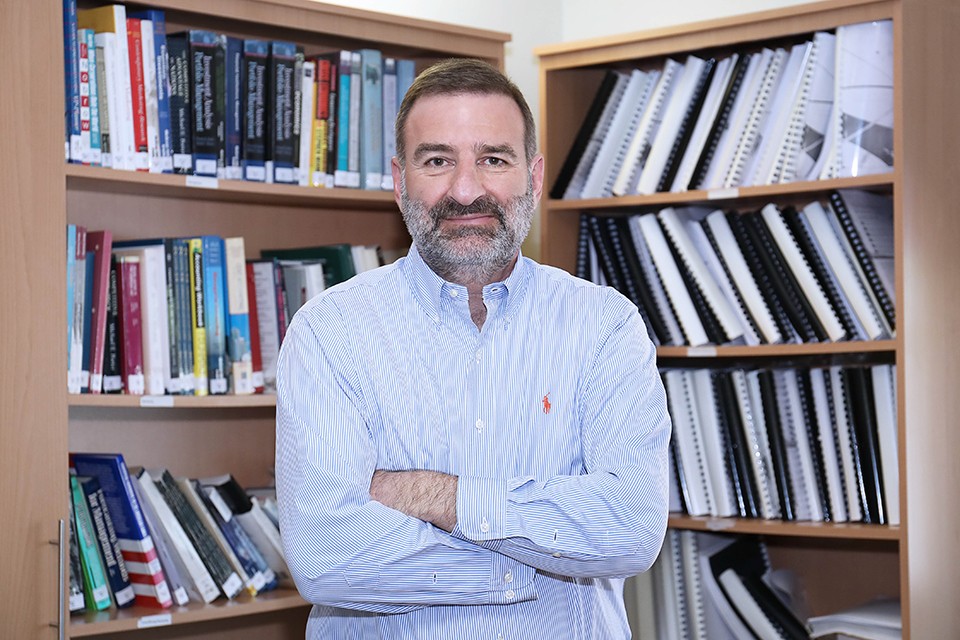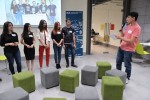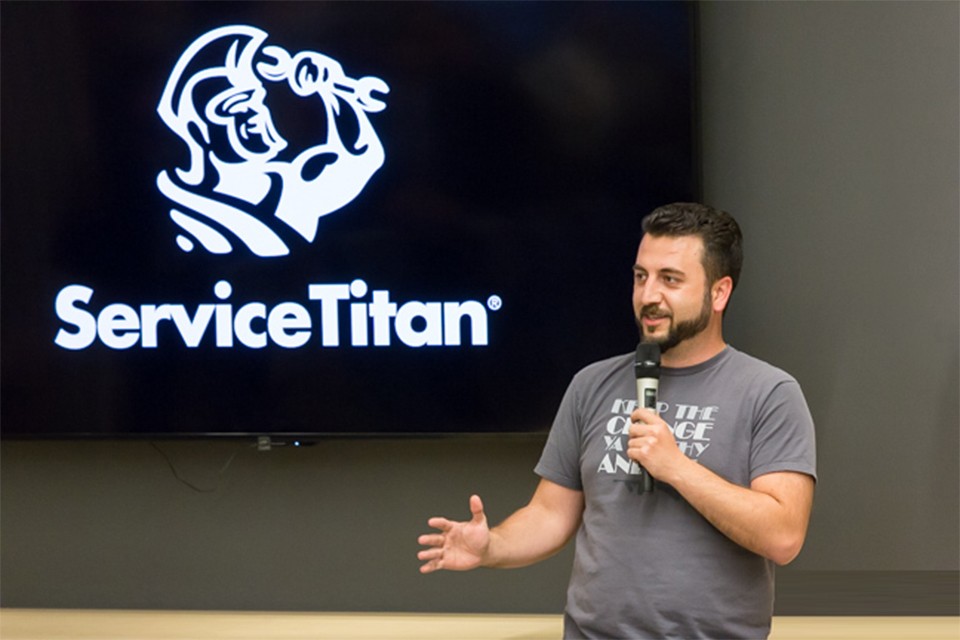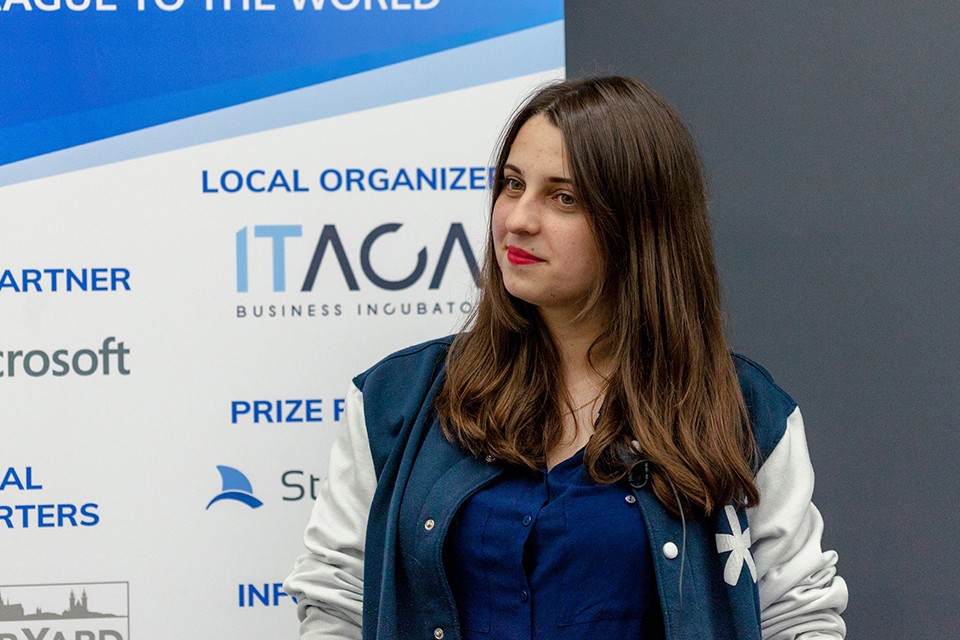-

Michael Kouchakdjian
11:44 | 19.11.18 | Interviews | exclusive 87639
Michael Kouchakdjian: EPIC’s goal is to guide startups to the next level of growth
Professor Michael Kouchakdjian is the newly appointed director of the Entrepreneurship and Product Innovation Center at AUA (EPIC), as well as Professor in the American University of Armenia’s (AUA) College of Business and Economics teaching Management and Entrepreneurship.
Dr. Kouchakdjian has considerable start-up and venture experience in both Armenia and the U.S.
Itel.am has talked with Michael Kouchakdjian on EPIC’s plans and Armenian tech developments in general.
You were appointed as the director of EPIC this April. What’s unique about EPIC and where do you want to take the center?
We are trying to get EPIC to a higher level in terms of quality, capacity, and opportunity. The short-term goals are to improve our programs to the level of the best university-based incubators overseas. We have done analysis of the ecosystem in Armenia and have determined EPIC’s positioning and strategy within the ecosystem. The goal is to be a valuable asset to the ecosystem, to complement existing capabilities, and to help business growth in Armenia. The strategy will be implemented by working with early stage startups to help them validate their ideas and move their ventures forward.
AUA has unique resources and capabilities that no other incubators or accelerators in Armenia possess. For instance, we have numerous courses in innovation, entrepreneurship, and start-ups taught by professors from both Armenia and abroad. According to a survey we recently conducted, 25 professors at AUA have been involved in starting or building a company, advising a venture, or financing one. So in AUA we have so much knowledge and experience that we can use to teach, mentor and advise the start-up teams of EPIC.
AUA now has 4000+ alumni which is a unique resource. 70 percent of the alumni are based in Armenia. Many are entrepreneurs. For instance, the 3 leading entrepreneurs from what is arguably the most successful startup from Armenia, PicsArt, are AUA graduates. Many of our other alumni are spread around the world -- some of them are successful entrepreneurs as well. They want to engage with EPIC and help our start-up teams with contacts from their worldwide network.
EPIC had two startup batches since its establishment in 2016. And even those students who were in our previous batches still consider EPIC and AUA their home and we continue to help them in every way that we can.
What is going to be different for EPIC’s fall batch?
We welcomed the new batch on October 1. Our new program is going to be a bit more formal and disciplined. We are providing the participants with weekly workshops and weekly discussions with entrepreneur leaders from Armenia and abroad. The mentoring will also be more engaged.
At EPIC, we want to involve not only AUA students but also others. A minimum of one person from each startup team is required to be an AUA student or graduate. Everyone else can be from outside the university. For instance, we even had one guy from last year’s batch who is a high school student.
What do the teams get during 12 weeks of acceleration?
Our initial goal is to prepare startups as advancing and high quality ventures that can go to the next level of development and growth. They get 24/7 access to our facilities, the prototyping labs, access to mentors, and active coaching. And, if a few of them are showing extremely good potential, we can consider supporting them with investment.
We also have a sophisticated prototyping lab in AUA as part of EPIC, with very advanced equipment to do prototyping and product engineering. Some of the capabilities of the lab are unique in Armenia such as our 3D laser scanner or our vacuum casting machine. Our students and our start-up teams use them to make their own prototypes. Access to the EPIC prototyping lab is also available to commercial users and businesses as a service.
AUA and EPIC also has a network of potential investors from outside Armenia. We help them identify investable ventures. AUA has been in Armenia for 27 years, and many look to the university for guidance. Many Armenians and non-Armenians from overseas want to do projects through AUA.
One of our EPIC graduate teams, Breedge, recently went to Seattle to participate in the Global Finals of the Microsoft Imagine Cup. AUA helped them to set up meetings in Silicon Valley with universities and entrepreneurs. For instance, they visited San Jose State University (SJSU), with whom AUA has a collaboration agreement. The career center at SJSU expressed interest in Breedge’s technology and asked to remain apprised of its development.
Besides the acceleration program, which other directions EPIC is looking at?
Now we are working on creating an investment fund, which will likely happen next year.
There are two other areas we want to focus on. We get inquiries from the diaspora’s early stage entrepreneurial ventures that want to have some representation in Armenia and they want to do it through AUA and EPIC. That’s a new area for us to consider. Those companies got more interested in Armenia after the velvet revolution, I suppose. People are feeling more and more comfortable to open an office here or for investing in a startup based in Armenia.
Another area we want to develop is cooperation with other universities in Armenia to help them to create incubators and accelerators within their institutions. We have invited representatives from universities in Yerevan, Artsakh and the regions to observe and get involved in our recent batch of ventures so they can see how we do things.
What are your thoughts about current developments in Armenian tech?
I think there is accelerating growth and potential, albeit from a relatively small base. The biggest challenge is human capital and maintaining an advanced workforce. We have to figure out how to retain the best specialists in Armenia. We all know the intensity of global competition for the best and brightest.
Technical knowledge in Armenia is very good but perhaps for starting and developing companies we need more expertise in management. AUA can provide this.
We are very optimistic about all what’s going on in Armenia, and as an educational institution, AUA is ready to work with everyone. Our goal is to do everything we can to help educate and train people in the new Armenia.
Narine Daneghyan talked to Michael Kouchakdjian

17:29 | 24.09.25 | Articles
Jacopo Losso on Cross-Border Investments and Why Armenia Attracts Angels









